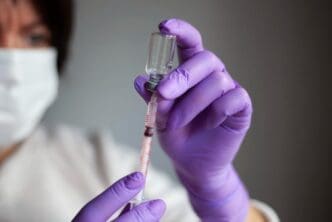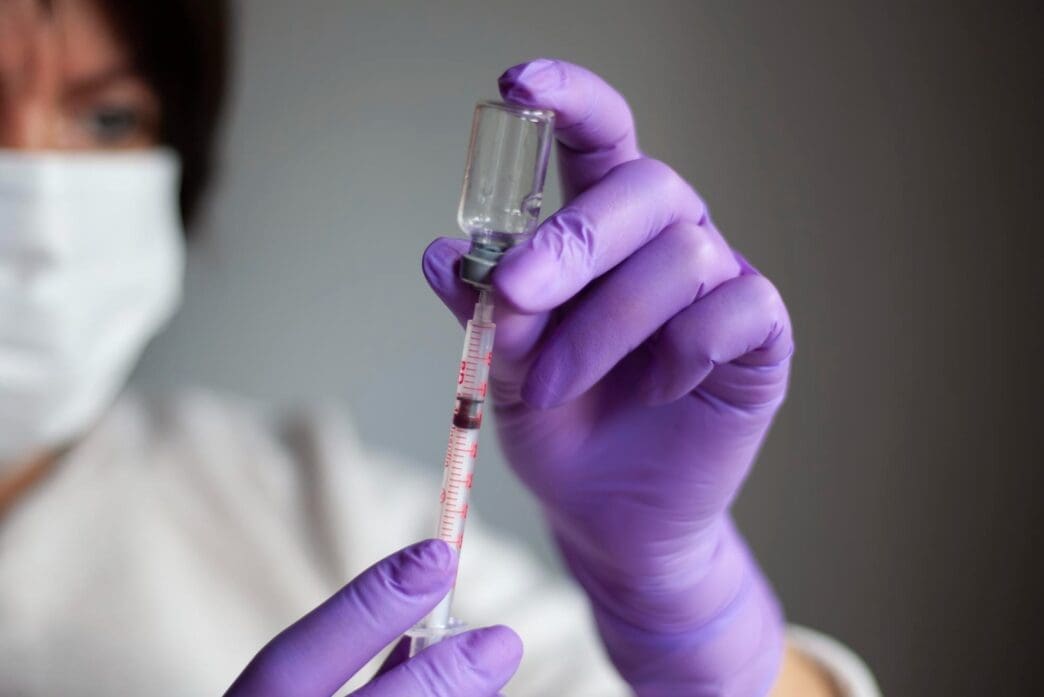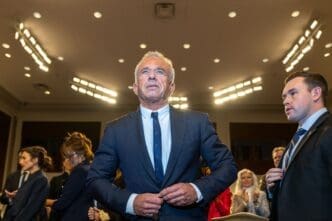Executive Summary
The Story So Far
Why This Matters
Who Thinks What?
As Health and Human Services Secretary Robert F. Kennedy Jr. intensifies efforts to reverse decades of established vaccine policy, the medical profession is emerging as a significant adversary for President Donald Trump’s administration. Medical groups are expressing alarm that Kennedy’s actions, which include dismissing advisory committees and narrowing vaccine access, pose an unprecedented threat to public health and could lead to a resurgence of deadly diseases, particularly among children.
Kennedy’s Policy Shifts and Medical Backlash
Secretary Kennedy’s tenure has seen several controversial moves, such as the dismissal of all members from a prestigious federal vaccine policy advisory committee. Additionally, his administration has narrowed access to the latest Covid vaccine and pledged to reexamine the widely debunked claim linking childhood vaccines to autism. These actions are viewed by many medical professionals as a “complete frame shift” and a “war on expertise,” according to Dr. Paul Offit, director of the Vaccine Education Center at the Children’s Hospital of Philadelphia.
Medical organizations fear that Kennedy’s rhetoric will encourage more parents to seek medical or religious exemptions from state vaccine mandates for school attendance. This concern escalated after Florida’s Surgeon General, Dr. Joseph Ladapo, and Republican Governor Ron DeSantis announced their intent to eliminate all state vaccine mandates, including those for schools, which would make Florida the first state to do so if implemented.
Public Trust and Political Risk
Unlike other institutions President Trump has targeted, such as law firms, universities, and media organizations, the medical profession maintains a deeper well of public credibility. Polls indicate that despite a decline in confidence since the Covid pandemic, a majority of Americans still trust doctors and believe major childhood vaccinations are safe and should remain mandatory for school attendance.
This public sentiment could make Kennedy’s anti-vaccine crusade politically riskier for President Trump. Drew Altman, president of KFF, a nonpartisan health care think tank, suggests that while Trump may currently enjoy the support of a fringe segment of his base, these actions could ultimately alienate a larger portion of the American populace. The key challenge for medical interests will be to unite effectively and amplify their message.
Challenges and Emerging Resistance
Many institutions previously targeted by President Trump have struggled to mount effective resistance, often opting for negotiation or quiet legal battles rather than public campaigns. This approach was partly due to public skepticism towards these sectors and the Republican base’s antagonism, as well as fears of administrative retaliation affecting funding or licenses.
However, medical professionals appear to be in a stronger position due to sustained public trust. Gallup polling shows 53% of Americans trust doctors, including 44% of Republicans. KFF surveys further reveal that approximately four-fifths of Americans trust their own doctors as reliable sources for vaccine information, contrasting sharply with lower trust levels for Kennedy or Trump on the same issue.
While a segment of Republican voters developed skepticism towards public health authorities during the Covid pandemic, creating an opening for Kennedy, Robert Blendon, an emeritus professor at Harvard T.H. Chan School of Public Health, notes that personal trust in physicians remains high. Blendon suggests that medical interests should personalize the potential impact of Kennedy’s policies to influence voters, emphasizing how these changes could endanger their own families.
Shifting Stance of Medical Organizations
Initially, many leading medical and professional associations adopted a cautious stance, similar to other targeted groups, fearing retaliation on federal reimbursement rates, particularly for Medicare. Pediatricians and other physicians could be vulnerable to such threats.
However, the tenor of medical groups’ responses has shifted significantly due to the escalating nature of Kennedy’s actions. The dismissal of Dr. Susan Monarez, the director of the US Centers for Disease Control and Prevention, who reportedly refused to endorse decisions reducing vaccine access, served as a turning point. The American Academy of Pediatrics, for instance, issued a stark statement calling it a “dangerous moment.”
The pediatricians, along with other public health and immunology groups, have taken aggressive steps, including suing to overturn Kennedy’s decision on Covid booster authorization and launching websites to counter vaccine claims. Even the American Medical Association, initially more hesitant, has seen internal dissent push it towards a more forceful stance, with its president calling Monarez’s dismissal “highly alarming.” A coalition of medical groups recently issued a joint call for Kennedy’s resignation, citing grave concerns for public health.
Broader Erosion of Expertise and Political Implications
The current environment reflects a broader decline in public trust in expertise, particularly among younger generations who favor a “DIY ethos” in seeking information, as noted by Daniel Cox of the American Enterprise Institute. This trend, promoting “medical freedom” over collective public health, has fueled Kennedy’s movement but directly conflicts with the foundational principles of public health, which prioritize community well-being.
This conflict is evident in declining vaccination rates, with the share of kindergarten students receiving the MMR vaccine falling below the 95% threshold needed for herd immunity. Such trends mean that even vaccinated children face increased risk if enough others remain unvaccinated.
While President Trump has shown reluctance to curb Secretary Kennedy, there are signs of emerging political cracks. Several GOP senators have openly challenged Kennedy’s direction, and Trump himself recently took a step away from vaccine skepticism, stating that “some vaccines just work.” These developments suggest that President Trump may eventually view Kennedy’s confrontational approach to vaccine policy as a threat to his own political standing, potentially galvanizing a political “antibody” response against extremism in this domain.












